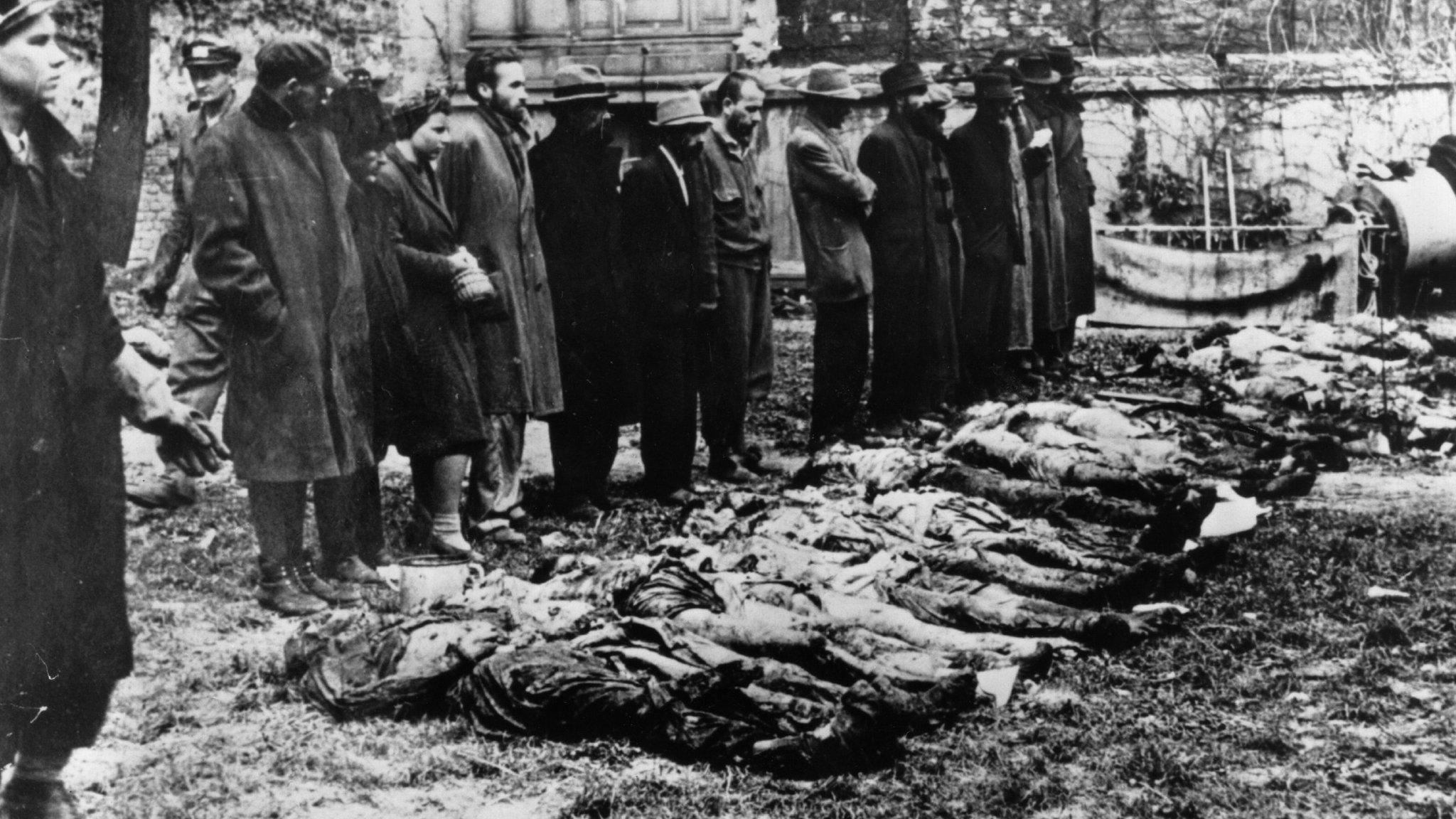Holocaust Memorial Day: 'Shocking' levels of denial remain
- Published
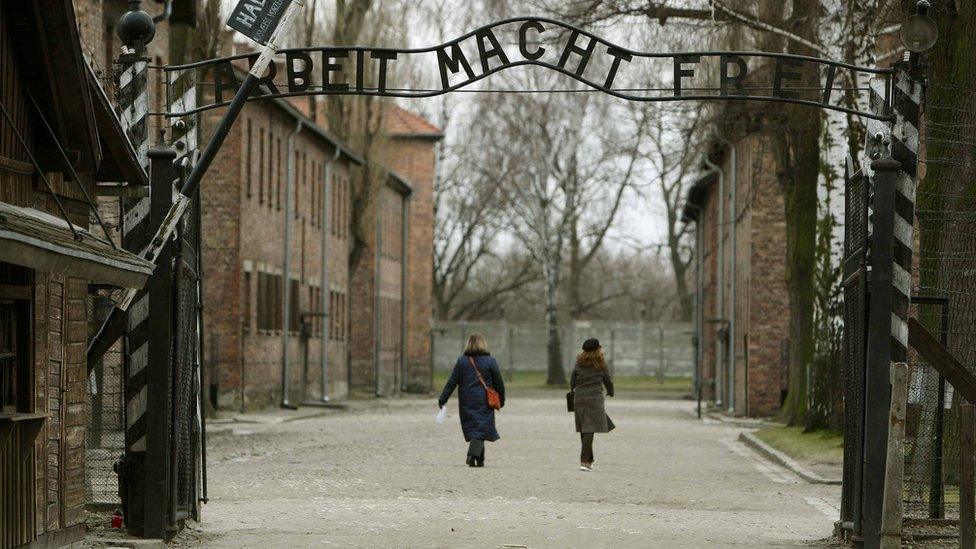
Six million Jews were murdered during World War Two
Five per cent of UK adults do not believe the Holocaust took place and one in 12 believes its scale has been exaggerated, a survey has found.
The poll, external of more than 2,000 people was carried out by Opinion Matters for the Holocaust Memorial Day Trust (HMDT).
Meanwhile, people have gathered across the country to mark Holocaust Memorial Day.
More than 11,000 activities took place, including a national commemorative ceremony in Westminster.
In the survey, 45% of those polled said they did not know how many people were killed in the Holocaust, while one in five (19%) believed fewer than two million Jews were murdered.
The actual figure was six million.
Holocaust Memorial Day also marks, external the 25th anniversary of the Rwandan genocide and 40 years since the end of the genocide in Cambodia.
Prime Minister Theresa May led tributes online with a message she had written in the Holocaust Educational Trust's book of commitment, calling for people to once again remember the catastrophe.
Allow X content?
This article contains content provided by X. We ask for your permission before anything is loaded, as they may be using cookies and other technologies. You may want to read X’s cookie policy, external and privacy policy, external before accepting. To view this content choose ‘accept and continue’.

Labour leader Jeremy Corbyn - who joined 200 Holocaust survivors at the service in Westminster - also shared a photo of himself signing the book, adding: "Let us never allow anti-Semitism or any other form of racism to disfigure our society."
Allow X content?
This article contains content provided by X. We ask for your permission before anything is loaded, as they may be using cookies and other technologies. You may want to read X’s cookie policy, external and privacy policy, external before accepting. To view this content choose ‘accept and continue’.

At the ceremony, survivors lit six candles to represent the six million Jewish victims.
Grandmother Rachel Levy, 87, who survived the Auschwitz concentration camp as a teenager and came to the UK after the war, said she was frightened by the anti-Semitism in Britain today.
"People are turning nasty again, of all classes," she said. "I don't understand why."
Although Jews were the Nazis' main target, a wide range of other groups were persecuted during the Holocaust, including gay people, minority races, political opponents like communists and trade unionists, and Jehovah's Witnesses.
A quarter of a million mentally ill and disabled people and half a million Roma (also known as gypsies) were killed.
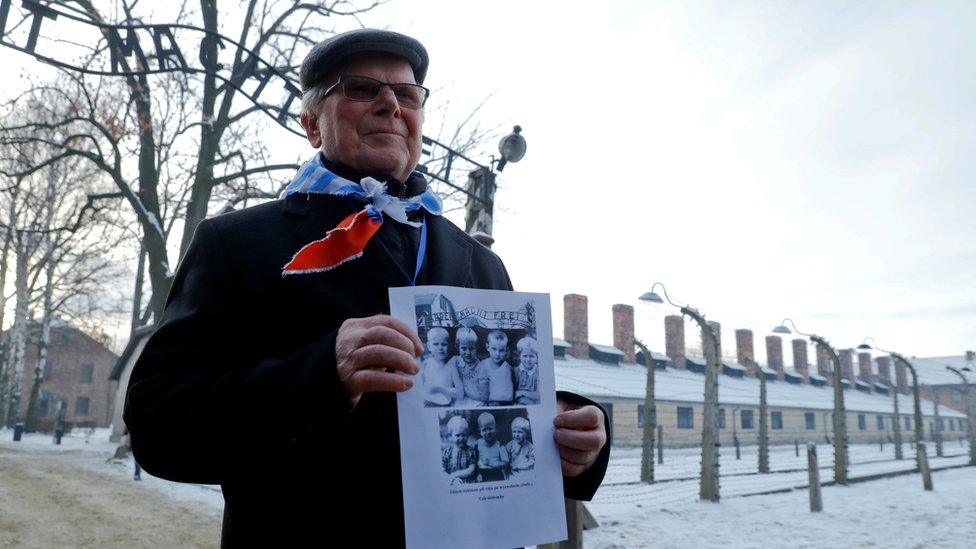
A survivor at Auschwitz to mark International Holocaust Victims Remembrance Day on Sunday
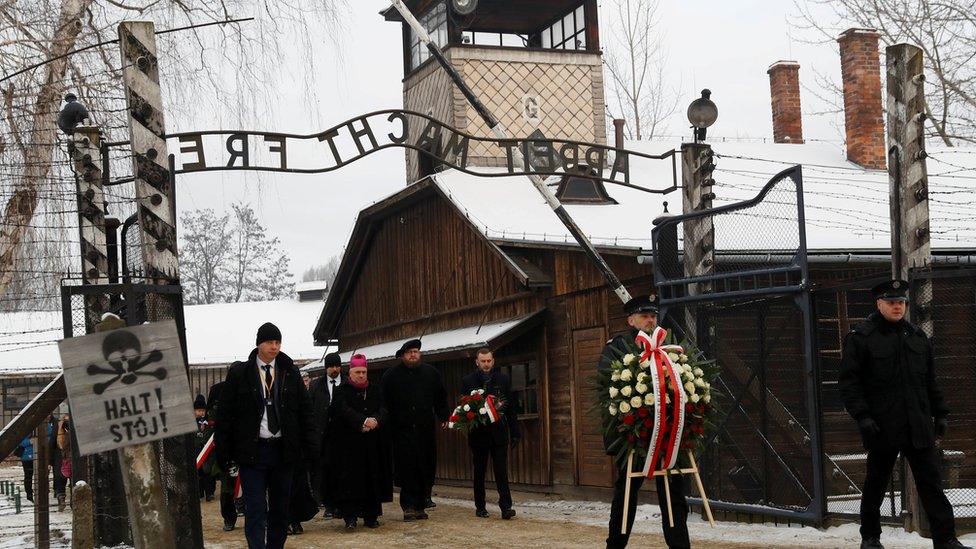
The memorial day coincides with the 74th anniversary of the liberation of Auschwitz, where people are laying wreaths
Holocaust survivor Steven Frank, who was one of 93 children to survive the Theresienstadt camp in Czechoslovakia along with his two brothers, said the survey's findings were "terribly worrying".
His father, who helped hide Jews as part of the Dutch resistance, was arrested in Amsterdam and gassed at Auschwitz, in Nazi-occupied Poland, in January 1943.
Mr Frank, who now lives in Hertfordshire, said he was "surprised" by the number of people who do not believe the Holocaust took place.
The 83-year-old said: "In my experience, people don't have a solid understanding of what happened during the Holocaust and that's one of the reasons I am so committed to sharing what happened to me.
"At one of my talks, I met someone who said the Holocaust didn't happen.
"The only way to fight this kind of denial and anti-Semitism is with the truth - I tell people what happened, what I saw and what I experienced."
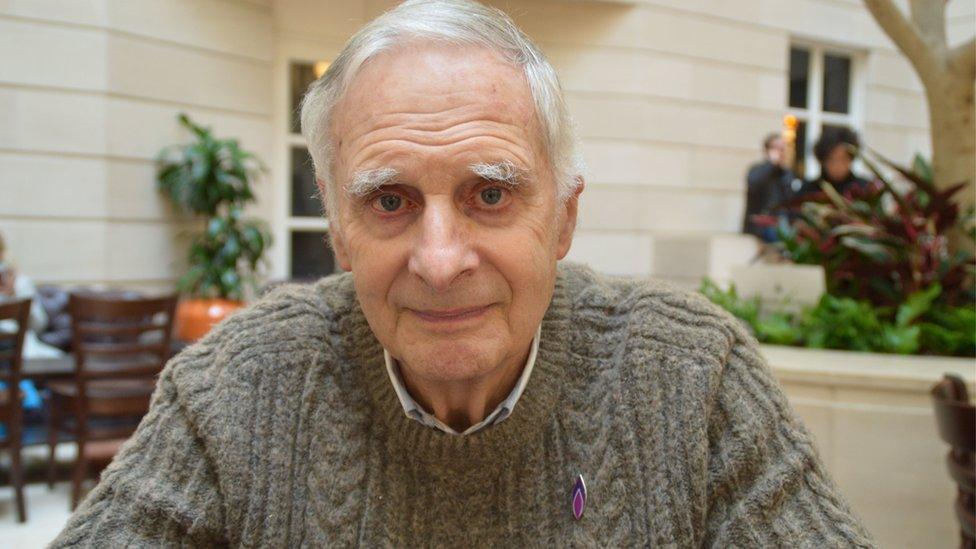
Steven Frank was one of 93 children to survive the Theresienstadt camp in Czechoslovakia
He added: "Education is so important. If we ignore the past, I fear history will repeat itself."
The HMDT's chief executive Olivia Marks-Woldman said: "Such widespread ignorance and even denial is shocking.
"Without a basic understanding of this recent history, we are in danger of failing to learn where a lack of respect for difference and hostility to others can ultimately lead."
She added that the rise in reported hate crime in the UK and the risk of genocide in ongoing international conflicts meant "we cannot be complacent".
Karen Pollock, chief executive of the Holocaust Educational Trust, said: "One person questioning the truth of the Holocaust is one too many.
"It is up to us to redouble our efforts to ensure future generations know that it did happen and become witnesses to one of the darkest episodes in our history."
- Published21 January
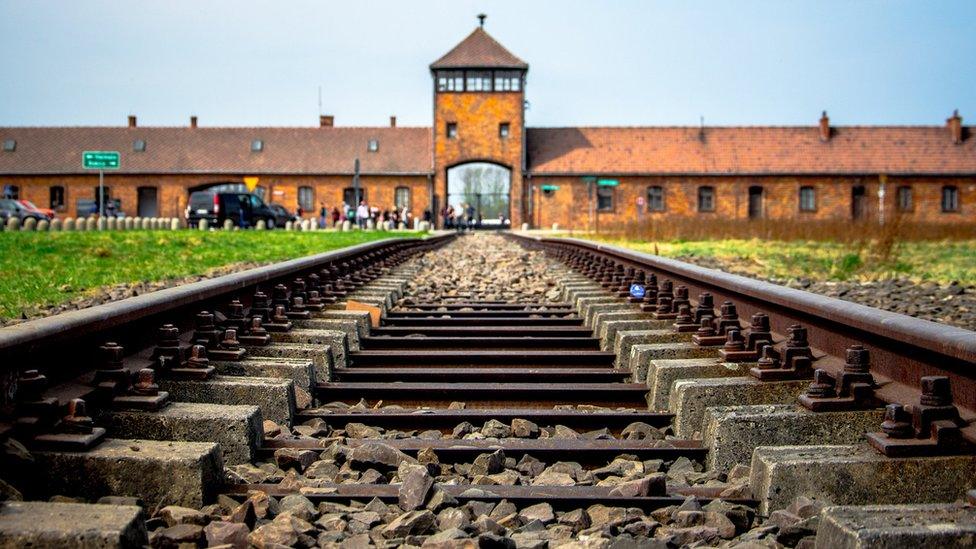
- Published26 January 2018
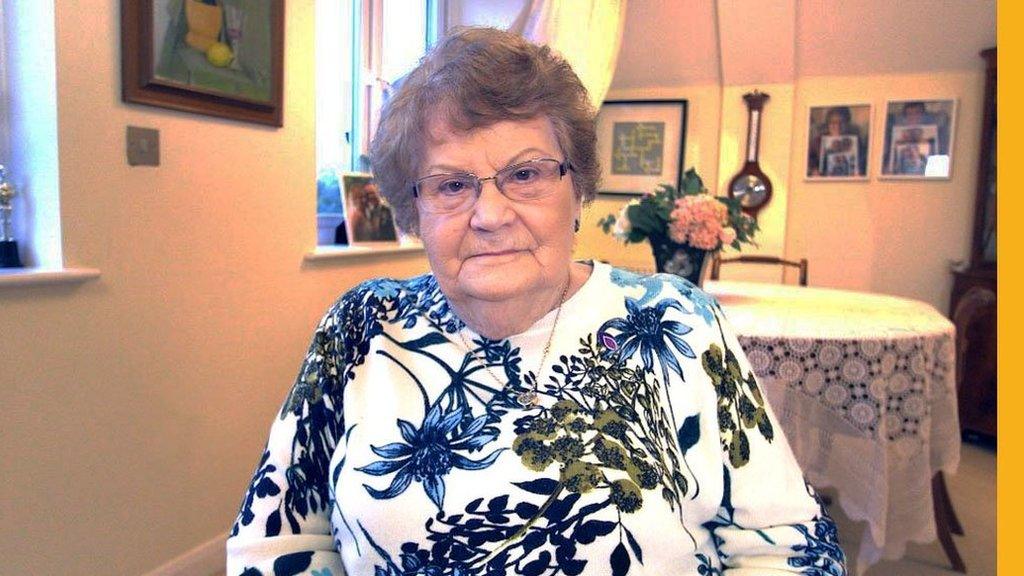
- Published20 January 2019
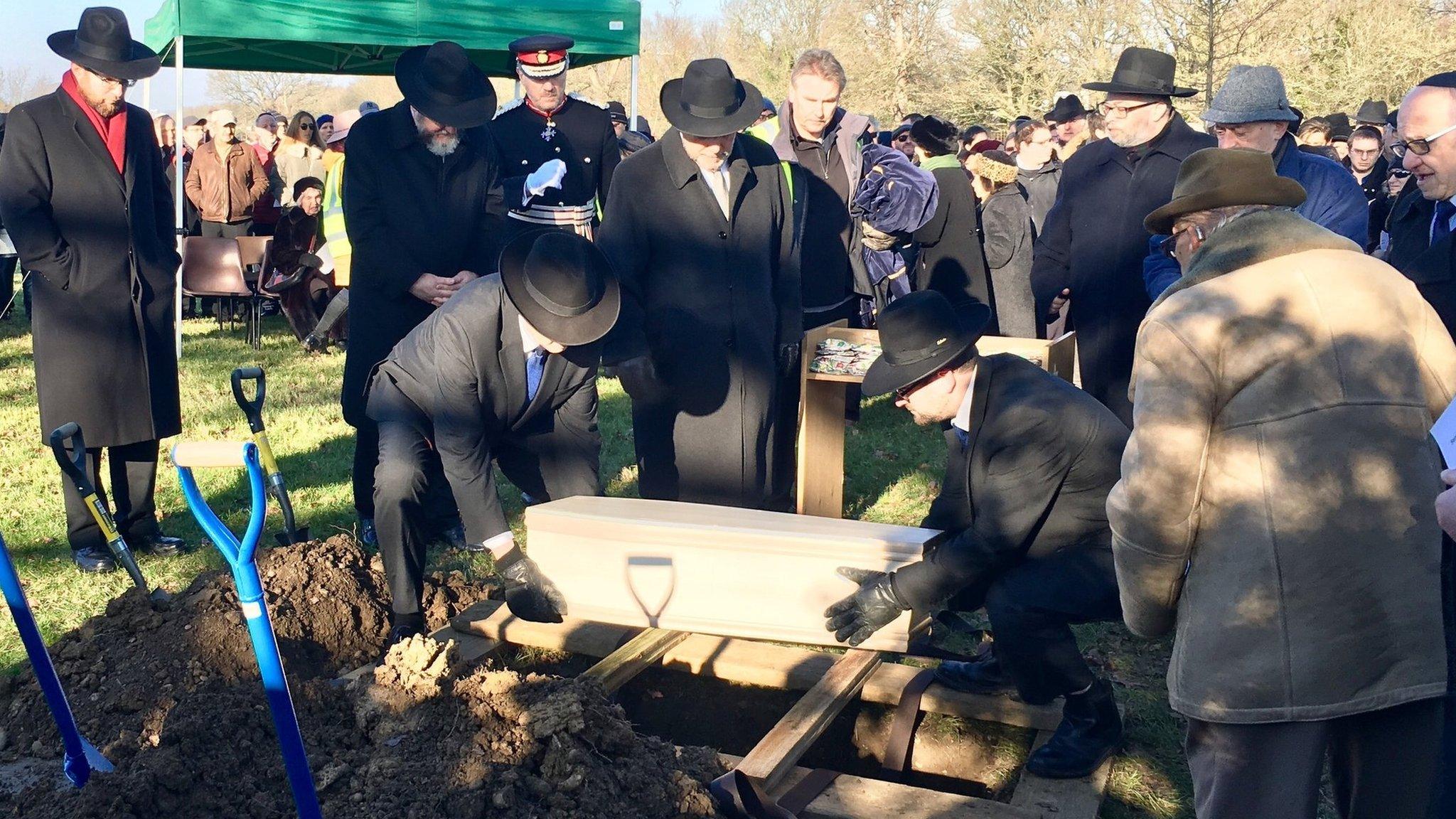
- Published27 January 2017
